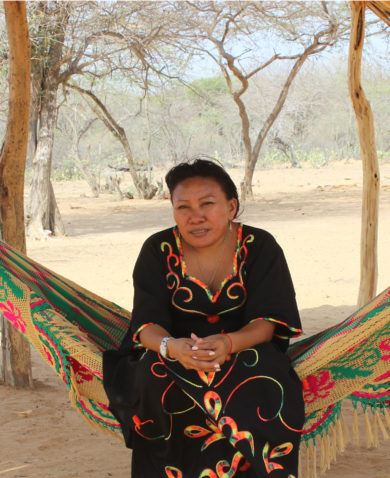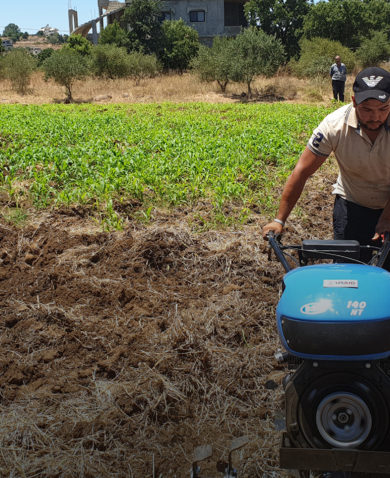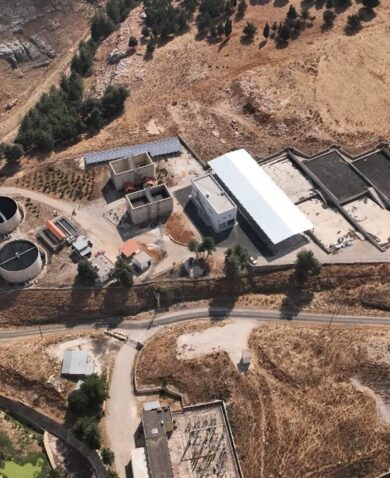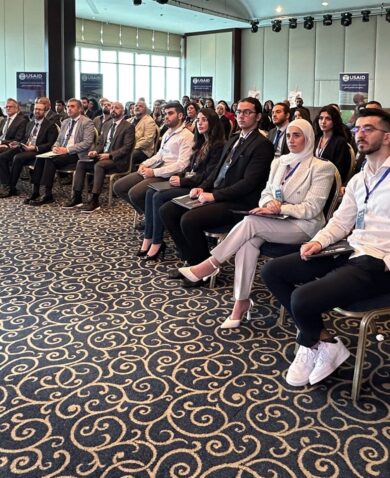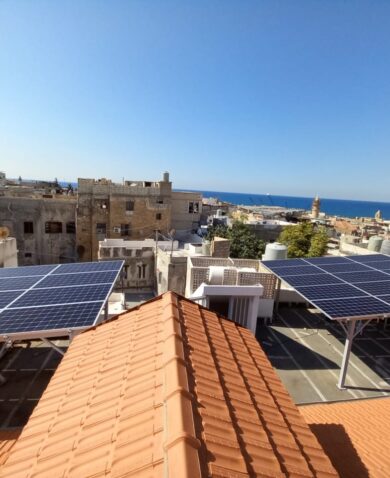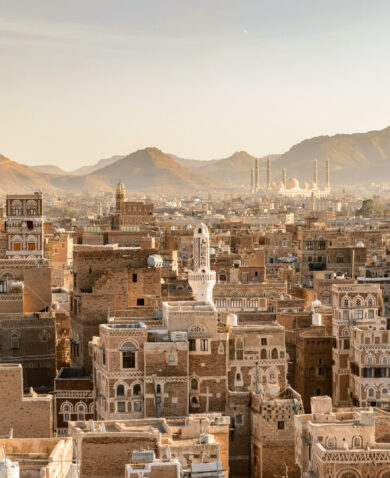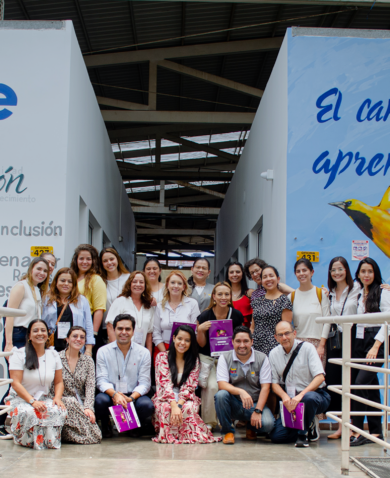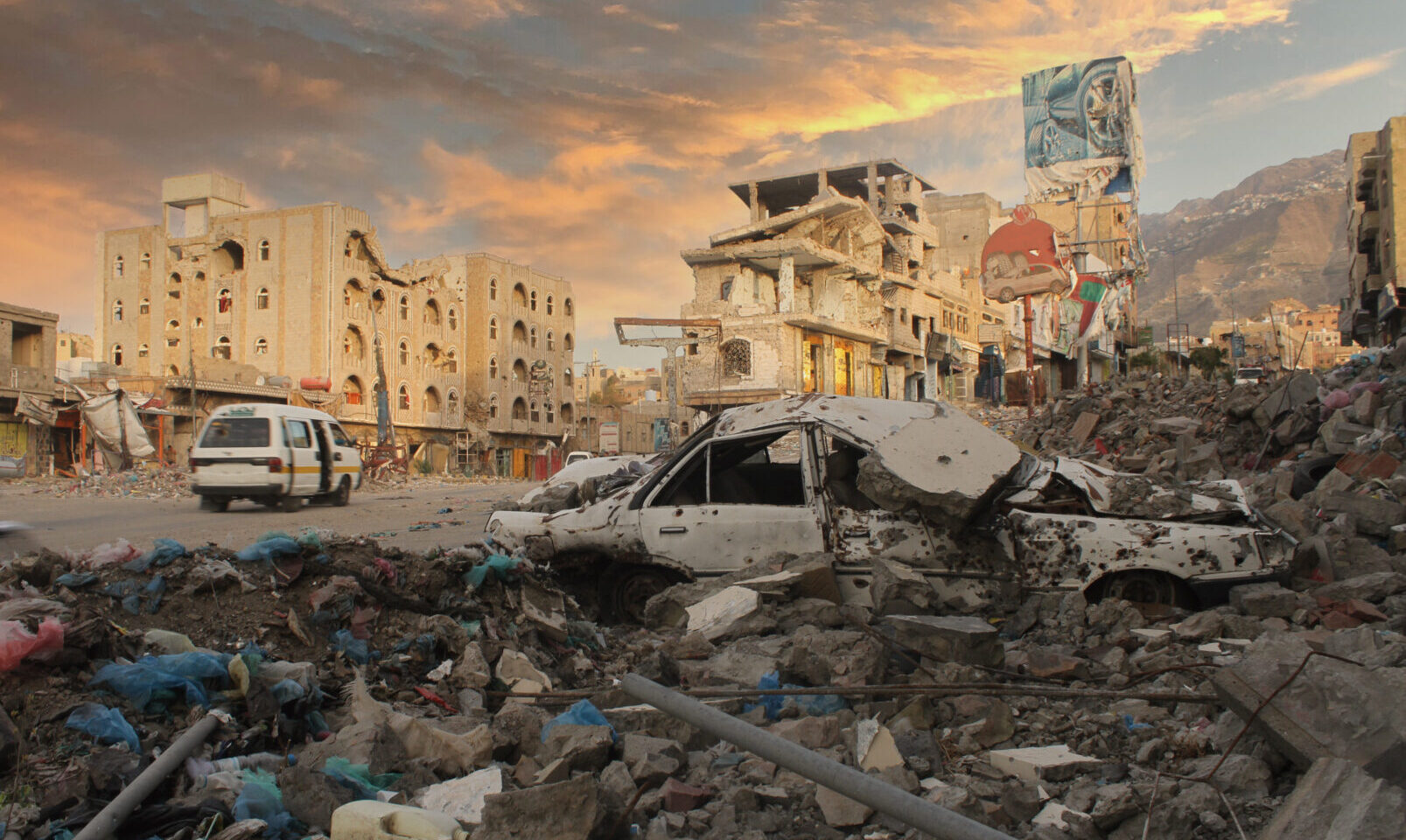
Incentivising and Stabilising a Peace Process Through Sensitive and Responsive Programming
May 18, 2023 | 6 Minute ReadHow challenging is conflict resolution in Yemen? Chemonics UK's Yemen Support Fund (YSF) project explores why now is a critical moment for Yemen.
Complex conflicts across Africa and Asia are posing a significant threat to regional and international stability. These conflicts are influenced by various factors including vested interests of superpowers, strategic alignments of regional actors, political leadership, availability of resources, and the number of armed actors. This makes it difficult for conflict resolution actors and programmes to succeed. Yemen is a prime example of such a complex conflict, and is considered amongst the world’s worst humanitarian crises, making it an extremely fragile environment for intervention.
As Yemen nears a decade of conflict, its people have suffered severe socio-economic setbacks due to the country’s descent into turmoil following the Arab uprisings and a two-year failed political transition. The war has taken a devastating toll on the population, with nearly 400,000 lives lost according to United Nations (UN) estimates, 60% of which were due to food insecurity and lack of access to health services. The conflict has also amplified deep-rooted socio-political grievances, driven by tensions between Ansar Allah and the internationally recognised government of Yemen, backed by the Saudi-led coalition, as well as disputes over state structure between the north and south and violent extremist groups.
The war has pushed 80% of Yemenis below the national poverty line, leaving 87% of the population unable to repay debts and creating dire living conditions for children, with 2.2 million suffering from malnutrition, and over 90% of parents unable to afford their children’s education. Over the past eight years there have been several attempts at international conflict resolution, but despite this the level of political violence has remained high, and opportunities for conflict settlement have been squandered by warring parties. Previous ceasefire agreements and peace deals have been derailed or severely challenged due to the divergent interests and positions of the main parties involved.
Why is this a critical moment for Yemen?
There are two ways that wars can end: one party can emerge victorious and dictate the terms of the peace agreement, or the conflict can reach a stalemate where both sides experience mutual pain. In the latter scenario, the conflicting parties may realise that they can better achieve their political objectives through dialogue rather than continuing to engage in armed conflict.
Currently, the parties in the Yemen conflict have reached this point. The front lines have not moved since 2018, and neither party can gain a military advantage over the other without incurring significant costs. The humanitarian and economic situation is also rapidly deteriorating, posing a dire threat to the lives of all Yemenis. As a result, it is increasingly clear that a peaceful resolution through dialogue is the only way to end the conflict and avoid further suffering.
This April, during a time of improving Saudi-Iranian relations, backchannel discussions between the Kingdom of Saudi Arabia and the Houthis were revealed, with the Sultanate of Oman playing a key role in conveying interest and commitment to reaching an agreement. Talks evolved to include a joint Saudi-Omani visit to Sana’a, led by the Saudi Ambassador, which were described as serious and extensive. While no agreement was hastily announced, confidence was built and talks were set to resume in May, culminating in a large prisoner exchange deal coordinated by the UN and International Committee of the Red Cross (ICRC), just before Eid. While this development is promising, it should not undermine the complexity of the challenges that lie ahead. Agreeing on revenue sources, currency, budget for salary payments, and opening roads, particularly the one in the city of Taiz, and securing a new Saudi-Yemeni border deal must be sequenced with security arrangements, leading to a comprehensive ceasefire. Furthermore, these issues are complicated by Houthi demands for a bilateral Houthi-Saudi agreement and demands by the Southern Transitional Council to be included in discussions about the Southern case.
Yemen remains at a critical juncture between extending and expanding the truce, and moving into a comprehensive ceasefire arrangement that will allow peace dialogue to kickstart between the Yemenis, or there will be a recurrence of widescale conflict. The ongoing negotiations between Saudi Arabia and the Houthis, the pace of discussions between the internationally recognised government of Yemen and the Saudi officials in Riyadh rapidly accelerating, and the successful implementation of prisoner exchange deals are positive signs which demonstrate the sincerity and commitment of the warring parties towards conflict resolution.
Preventing Yemen from Further Descent into Mayhem: The Role of Conflict Settlement Actors
The UN Special Envoy is leading a concerted effort by the international community and conflict settlement actors to increase the likelihood of a peace deal being accepted in Yemen. To achieve a sustainable political agreement and transitional roadmap, successful peace efforts require the involvement of multiple actors who can provide incentives, leverage, and, most importantly, trust-building measures. These measures must be carefully coordinated and guided so that Yemenis can effectively and sensitively resolve complex issues whilst in a fragile and unstable environment. In the immediate term, these efforts must focus on agreeing on revenue sources and budget for salary payments, opening roads (particularly in Taiz), and expanding flight and shipping activities through Sana’a’s airport and the Hudaydah port.
Looking beyond the truce, Yemenis must come together to develop roadmaps that allow for agreements on sharing revenue from oil and gas resources, addressing economic and financial instability – by rebuilding the Central Bank of Yemen to formulate and implement monetary policy – regulate the financial and banking system, and manage foreign exchange reserves. Additionally, they must reconstruct the Ministry of Finance to manage revenue collection, budgeting, and expenditure management. These efforts must also include agreeing on a roadmap for security arrangements, starting with the allocation of resources in priority de-escalation areas, and the agreement on shared security arrangements, followed by initiating dialogue on necessary security sector reform.
How could Conflict Settlement Efforts be Supported?
Chemonics UK is leading a consortium of partners to implement an innovative UK government stabilisation programme, the Yemen Support Fund (YSF). YSF identifies and invests in opportunities that protect civilians, promotes political de-escalation and dialogue, and strengthens the foundations for longer-term stability in Yemen. In its research and delivery, YSF emphasises direct support to UN-led efforts to de-escalate the conflict and identify pathways to a durable peace; identifying and supporting bottom-up efforts by Yemeni actors to complement UN efforts; and providing policymakers with analytical insights and programmatic intervention options by experienced Yemeni and international researchers and advisers. Over the past year, YSF has successfully identified, developed, and delivered activities that directly serve UN-led conflict settlement efforts and Yemeni mediation efforts, incentivising cooperation and generating tangible benefits to the local communities and conflict resolution actors.
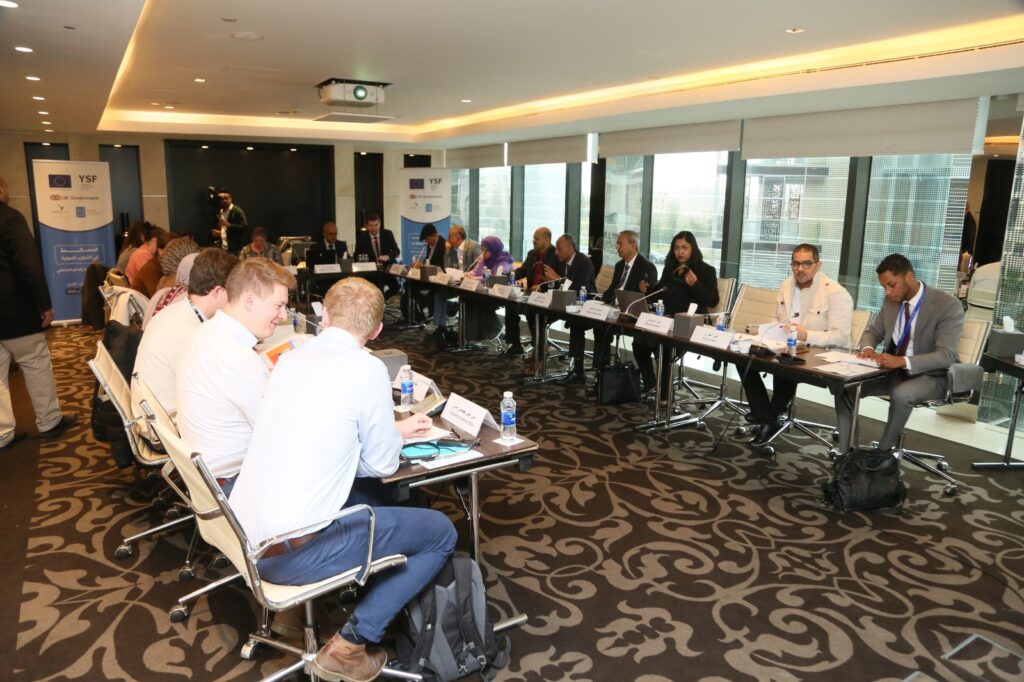
During a YSF workshop with the Political Reconciliation Committee in Amman, Committee members listen to an expert on reconciliation experiences in Lebanon, 12 March 2023.
The UN Special Envoy is receiving assistance in several areas, including support for local mediation, demining efforts, and mediation process design. To enhance coordination and information sharing between local mediators and the UN Special Envoy, a more structured and organised team of local mediators has been established for prisoner exchange and also exchange of the bodies of those who have lost their lives. Additionally, demining support is being directed as a peace dividend to incentivise parties to open roads in Taiz during the truce. The YSF is providing rapid support to its partner The HALO Trust, which is better equipped than ever to respond to the scenario of opening roads in Taiz by conducting mechanical demining to reduce the risk of casualties. Finally, YSF has contracted two experts from the Swiss Federal Institute of Technology in Zurich (ETH) to provide surge technical assistance and advisory support to the Office of the Special Envoy on designing and strategising the security pillar of the UN consultation framework and pre-ceasefire arrangements.
In addition, YSF provides support to three initiatives aimed at promoting peace and reconciliation in Yemen. The first is the Taiz Political Reconciliation, a Yemeni-led initiative that aims to address the political fragmentation and social tensions within the internationally recognised government of Yemen, particularly in the Taiz governorate. YSF worked with its partner DeepRoot Consulting to establish a committee composed of representatives from various political parties and provided them with seed funding for institutional and secretarial support.
The second group of initiatives that YSF supports are civil society movements that bring together influential figures from the Yemeni diaspora and in Yemen who share a common goal of peace and reconciliation. These movements provide a platform for independent and neutral Yemeni views on political developments, and aim to strengthen communication channels across conflicting lines. YSF aims to amplify the voices and agency of these movements, which aspire for dialogue and peaceful resolution of the conflict in Yemen.
Thirdly, YSF, in partnership with the Yemen Policy Centre, and with the support of the UN Special Envoy’s Office, is focused on empowering women, youth, and civil society organisations. This initiative aims to enable them to participate in upcoming truce arrangements and ceasefire agreements and make the most of the opportunity presented by the peace process. Civil society groups will be provided with support and promotion to ensure their effective participation in the process, which will ultimately lead to the improvement of the safety of their communities.
With Chemonics UK-led YSF assistance, supported by the UK government, many parties are working towards true resolution, and the end to the conflict that, for many years, has blighted the lives of the people of Yemen.
Banner image caption: Destroyed houses due to war in Taiz, Yemen. Photo by Akram Alrasny on Adobe Stock.
Posts on the blog represent the views of the authors and do not necessarily represent the views of Chemonics.








